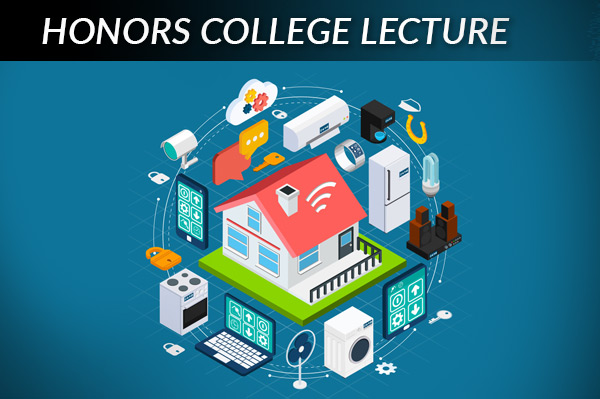
Today, most Americans have smart phones (77%) and computers (78%), and nearly all use the internet (88%). Driven in part by cellular telephones — the fastest spreading technology the world has ever known — nearly half of the world's people are online. The internet is not only connecting people, it is connecting things, such as cars, appliances and thermostats. Already, an estimated 8.4 billion connected objects are in use around the world as a part of this "Internet of Things." And technologies are becoming increasingly wearable and embedded in both our bodies and our brains.
"For millennials, privacy is dead — it's irrelevant, because they think 'I'm not doing anything wrong, so who cares?'" said Stephanie Schulte, an associate professor of communication in the J. William Fulbright College of Arts and Sciences. "But I can imagine scenarios where they would care — for example, if they're buying cigarettes or repeatedly accessing a refrigerator filled with processed foods, and their health insurance goes up."
Schulte's lecture previews her Spring 2018 Signature Seminar, Internet, which will tackle the latest questions, including:
- Has mobile technology made us more productive or more distracted?
- Does Instagram make us pro-social, anti-social or differently social?
- How has Twitter's #FakeNews and #InternetTrolls affected #Democracy or #Activism?
- Will the Internet of Things give us better products, turn us into products, or leave us vulnerable to hackers?
"We give up data because it makes our lives better," Schulte said. But it's important to remember that "if you're not paying for the service, then you are the product."
Stephanie Schulte teaches courses in new media, communication technology, media studies, media literacy and cultural studies. She has published numerous articles in academic journals ranging from Feminist Studies to American Behavioral Scientist and Mass Communication and Society. Her book, Cached: Decoding the Internet in Global Popular Culture (New York University Press, 2013), was praised as "the most culturally sophisticated history of the Internet yet written."
Schulte has received myriad honors and awards during her time at the U of A, including a Fulbright Scholarship, the Celebrate Women Certificate of Appreciation from the Center for Multicultural and Diversity Education, and the Office of Nationally Competitive Awards' Outstanding Mentor Award.
Next spring, in addition to Schulte's course, the Honors College will offer Signature Seminars on Manuscript, taught by English professor Joshua Byron Smith, and Soccer, taught by Todd Cleveland. The Signature Seminars, designated HNRC 4013H in the university's Catalog of Studies, focus on a wide range of cutting-edge topics, including disease, water, aging, profit and resilient design. Honors students must apply to participate in these courses, and those selected will be designated Dean's Signature Scholars. The deadline to apply is Sunday, Oct. 15.
Topics
Contacts
Kendall Curlee, director of communications
Honors College
479-575-2024, kcurlee@uark.edu